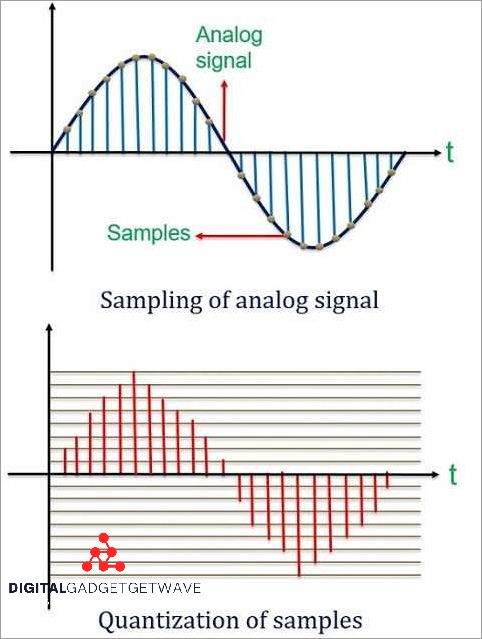DMS Automotive: Complete Guide to Dealer Management Systems
Understand dms automotive systems
Dms automotive refer to dealer management systems specifically design for automotive dealerships. These comprehensive software platforms serve as the central nervous system for car dealerships, integrate various operational aspects into one cohesive platform. From inventory management to customer relationships, dms automotive solutions streamline every facet of dealership operations.
Modern automotive dealerships face complex challenges that require sophisticated technological solutions. A robust dms automotive system address these challenges by provide real time data access, automate workflows, and comprehensive reporting capabilities that drive business success.
Core components of dms automotive solutions
Inventory management
The inventory management component of dms automotive systems track vehicle stock levels, specifications, and locations across multiple lots. This functionality enable dealerships to maintain accurate records of new and use vehicle inventory, include detailed information about each vehicle’s features, pricing, and availability status.
Advanced inventory features include automate reorder points, vehicle age reports, and integration with manufacturer systems for new vehicle allocation. These capabilities ensure dealerships maintain optimal inventory levels while minimize carry costs.
Customer relationship management
Dms automotive platforms incorporate sophisticated CRM functionality that maintain comprehensive customer profiles throughout the entire ownership lifecycle. These systems track customer interactions, service history, purchase preferences, and communication log to enable personalized customer experiences.
The CRM component facilitate target marketing campaigns, service reminders, and follow-up communications that enhance customer retention and drive repeat business. Integration with communication channels ensure consistent messaging across all customer touchpoints.
Sales management
Sales management features within dms automotive systems streamline the entire sales process from initial customer contact through final delivery. These tools manage leads, track sales opportunities, generate quotes, and facilitate financing arrangements through integrated FBI modules.
Sales reporting capabilities provide detailed analytics on sales performance, conversion rates, and profitability metrics. This data enable sales managers to optimize processes and improve team performance through data drive insights.
Service department integration
Dms automotive systems excel in service department management by scheduling appointments, track work orders, and manage technician productivity. The service module maintain detailed service histories for each customer vehicle, enable proactive maintenance recommendations and warranty tracking.
Parts inventory integration ensure service departments have necessary components available while minimize excess inventory. Automated parts order and vendor management streamline procurement processes and reduce service delays.
Labor management
Technician scheduling and productivity tracking features help service managers optimize labor allocation and identify training opportunities. Time tracking capabilities ensure accurate billing and improve operational efficiency through detailed performance analytics.
Financial management capabilities
Comprehensive financial management tools within dms automotive systems handle accounting, payroll, and financial reporting requirements. These features integrate with external accounting systems while provide dealership specific functionality for commission calculations, warranty reimbursements, and manufacturer incentive tracking.
Real time financial dashboards provide executives with immediate visibility into key performance indicators, cash flow, and profitability metrics. This transparency enables informeddecision-makingg and strategic planning base on accurate financial data.
Compliance and report
Dms automotive solutions maintain compliance with industry regulations and manufacturer requirements through automate reporting and documentation features. These systems generate require reports for manufacturers, regulatory agencies, and financial institutions while maintain audit trails for all transactions.
Technology infrastructure
Modern dms automotive platforms leverage cloud base architectures that provide scalability, reliability, and accessibility from multiple locations. Cloud deployment eliminate the need for extensive on premises hardware while ensure data security through enterprise grade protection measures.
Mobile accessibility enable sales staff and service advisors to access critical information and update records from anyplace within the dealership. This mobility enhances customer service and improve operational efficiency through real time data access.
Integration capabilities
Dms automotive systems integrate with numerous third party applications include manufacturer systems, credit bureaus, marketing platforms, and accounting software. These integrations eliminate data silos and ensure information consistency across all business systems.
API connectivity enable custom integrations with specialized tools and emerge technologies, ensure dms automotive solutions remain adaptable to change business requirements and technological advances.
Benefits of dms automotive implementation
Operational efficiency
Implement a comprehensive dms automotive solution importantly improve operational efficiency by automate routine tasks and eliminate manual data entry. Streamlined workflows reduce processing time and minimize errors that can impact customer satisfaction and profitability.
Centralized data management ensure all departments access consistent, up-to-date information, improve coordination and reduce miscommunication between sales, service, and administrative staff.
Enhanced customer experience
Dms automotive systems enable personalized customer interactions through comprehensive customer profiles and communication history. Service advisors and sales staff can rapidly access relevant customer information to provide informed, professional service that build trust and loyalty.

Source: appinventiv.com
Automate communication features ensure customers receive timely service reminders, promotional offers, and follow-up messages that demonstrate the dealership’s commitment to ongoing customer relationships.
Select the right dms automotive solution
Choose an appropriate dms automotive system require careful evaluation of dealership size, operational complexity, and growth objectives. Key considerations include scalability, integration capabilities, user interface design, and vendor support quality.
Dealerships should evaluate multiple vendors through demonstrations, reference checks, and pilot implementations to ensure select solutions meet specific operational requirements and provide expect returns on investment.
Implementation considerations
Successful dms automotive implementation require comprehensive planning, staff training, and data migration strategies. Dealerships must allocate sufficient time and resources for system deployment while maintain normal business operations during the transition period.
Change management processes help staff adapt to new workflows and maximize system utilization. Ongoing training and support ensure continue system optimization and user adoption throughout the organization.
Future trends in dms automotive technology
Artificial intelligence and machine learning capabilities are progressively integrated into dms automotive platforms, provide predictive analytics for inventory management, customer behavior analysis, and service scheduling optimization. These advanced features help dealerships anticipate market trends and customer needs.
Enhance mobile functionality and customer self-service portals are become standard features that improve customer convenience while reduce administrative workload. These capabilities align with change customer expectations for digital interaction options.
Data analytics and business intelligence
Advanced analytics capabilities within dms automotive systems provide deeper insights into business performance, customer preferences, and market opportunities. These tools enable data drive decision-making that improve profitability and competitive positioning.
Predictive analytics help dealerships optimize inventory levels, identify service opportunities, and develop target marketing campaigns that generate higher conversion rates and customer satisfaction scores.

Source: spyne.ai
Maximize dms automotive ROI
Dealerships maximize return on investment from dms automotive systems through comprehensive utilization of available features and ongoing system optimization. Regular performance reviews and user feedback sessions identify opportunities for improved efficiency and enhanced functionality.
Continuous staff training ensure users remain proficient with system capabilities and take advantage of new features as they become available. This ongoing education investment pay dividends through improve productivity and customer service quality.
Dms automotive systems represent essential infrastructure for modern automotive dealerships seek competitive advantages through operational excellence and superior customer service. These comprehensive platforms integrate critical business functions while provide the flexibility and scalability need for long term success in to evolve automotive retail landscape.
MORE FROM promospotlight.com












